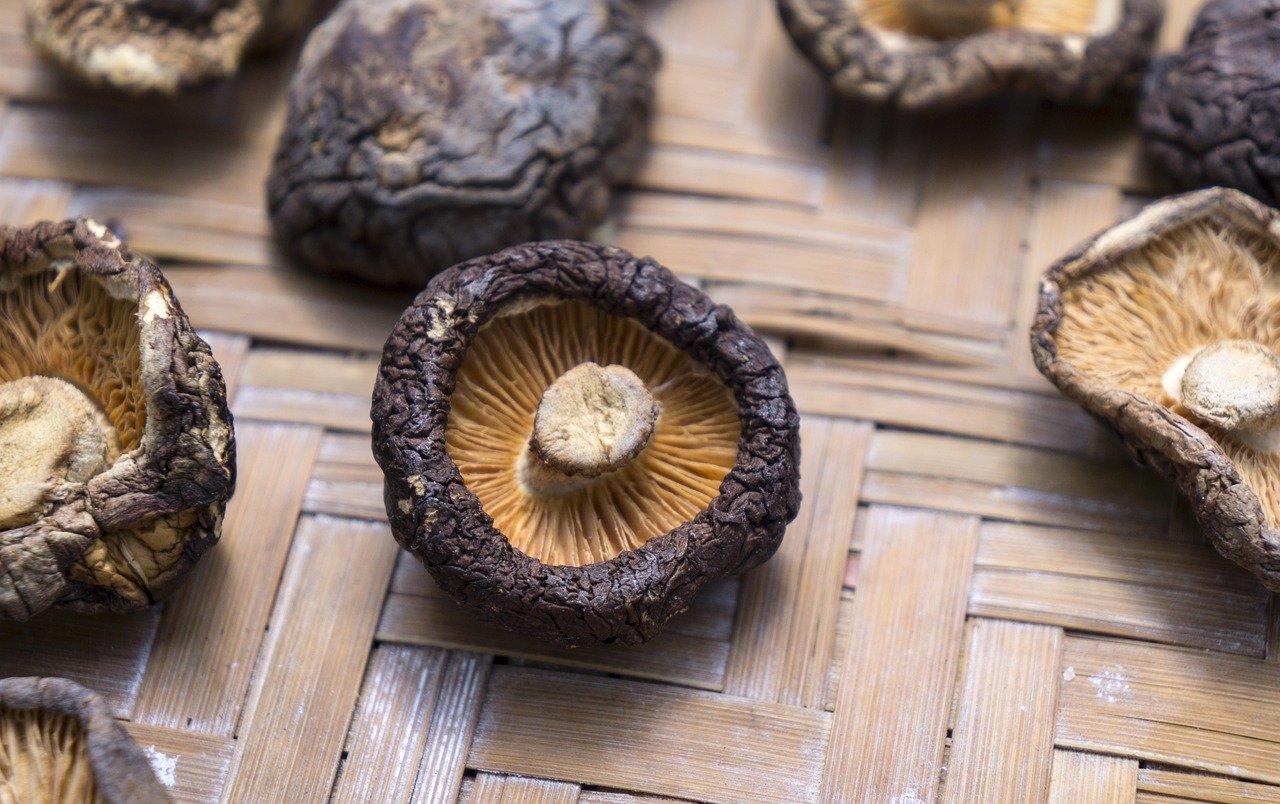Dalibor Sýkorovský graduated with a master´s degree from the Faculty of Tropical Agriculture and is currently working on the True Shiitake project.
1) Could you introduce the True Shiitake project?
We grow mushrooms in the traditional Japanese method, and like the old samurais, we collect them from fallen trees. Why Shiitake on Wood logs? Because we firmly believe in a sustainable future!
Cultivation enters as an intermediate stage in the production of firewood. This means that for several years it is possible to create healthy food and then use wood as actual firewood. The cultivation system also allows us to uniquely combine intensive and extensive agriculture. On a few hundred square meters we can produce up to 30 times more protein than beef cattle. For this, we need about 70 times less water *. Because of these crucial aspects that are very important to the sustainable way of life on this planet, we would like to introduce Shiitake mushroom growing into society. With minimal cost, a bit of patience and work, almost everyone can use wood as a regular source of food for several years.
At our farm, which hasn't been used for a few dozen years in the vicinity of the village of Kárany, we are working hard to achieve full energy self-sufficiency, using 100% rainwater and waste materials, while still producing a full-fledged food with high vitamin content and effective substances.
2) How did you get involved in the True Shiitake project?
I got to grow Shiitake mushrooms by the traditional natural method during my stay in the USA, where I first tried to inoculate the fungi on fallen oaks. This Japanese method worked very well for me and I decided to rent an old building close to the forest near the village of Káraný. I inoculated the felled oaks and let them grow for a year. Although it turned out that lowlands are a bigger issue for the cultivation itself than the humid ocean climate, I finally rejoiced in the Spring of next year from the first big harvest, which proved that adaptation to our natural conditions is possible.
3) What are your perceived differences between the Czech Republic and the USA?
There are many differences across the whole spectrum of our project. Starting with gastronomy, where the approach „farm to table“ has a history of several decades in the USA and unfortunately it is still in its infancy here. Thanks to our project, we also learned about the strong European conservatism that does not support new types of agriculture and, finally, an absurd difference in the administrative burden that is associated with entrepreneurship.
4) What did you gain during your time at FTA? Who influenced you the most and why?
Throughout my bachelor studies, I gained a wide overview of agriculture in tropic and subtropic regions. During my master's studies, I could continue deepening my knowledge in the natural sciences. On top of that, I could travel, get to know different cultures, and got inspired by them.
Certainly, I was most influenced by prof. Pavla Hejcmanová. I very much appreciate the rare combination of her human approach and scientific expertise.
5) What was your favorite subject/who was your favorite teacher at FTA?
I really enjoyed Ecosystems with Dr. Karel Jan Štolc.
6) Any recommendations for current and future FTA students?
Don’t waste your time. Now more than ever there is a lot of work to be done in agriculture and ecology fields in the Czech Republic as well as in the developing countries.
7) What are your plans for the future?
I would like to improve in my craft because mushroom cultivation is a craft like any other. After five years of experience, there is still plenty of room for improvement. At the same time, we want to introduce Shiitake cultivation into society and, ideally, continue with other forms of sustainable agriculture.


